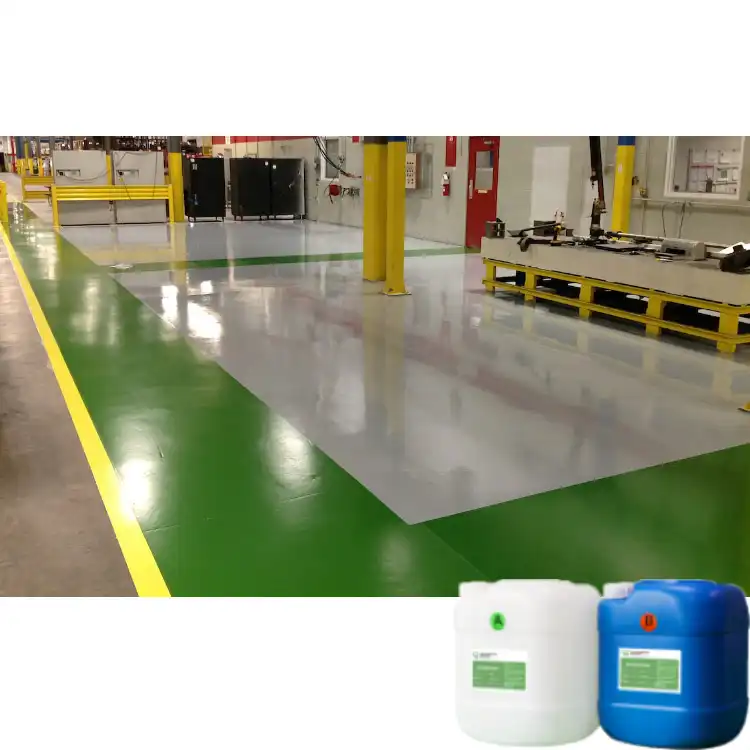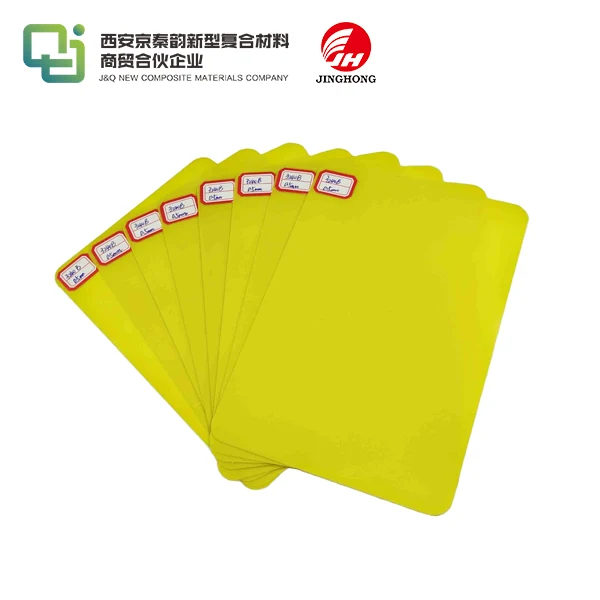Application of epoxy sheet in thermal management of new energy vehicles
2025-02-27 17:16:41
Epoxy sheets play a crucial role in the thermal management of new energy vehicles, offering exceptional insulation properties and heat dissipation capabilities. These advanced materials are integral to maintaining optimal operating temperatures for batteries, power electronics, and other critical components in electric and hybrid vehicles. By efficiently managing heat distribution, epoxy sheets contribute to enhanced performance, extended battery life, and improved overall safety of new energy vehicles. Their lightweight nature, coupled with excellent thermal conductivity and electrical insulation properties, makes epoxy sheets an indispensable component in the design and manufacturing of modern electric and hybrid vehicles, enabling manufacturers to meet the demanding thermal challenges of these innovative transportation solutions.
Thermal Management Challenges in New Energy Vehicles
Heat Generation in Electric Vehicle Components
New energy vehicles, particularly electric and hybrid models, face unique thermal management challenges due to the substantial heat generated by their powertrain components. The high-capacity batteries, electric motors, and power electronics produce significant amounts of heat during operation, which can negatively impact performance and longevity if not properly managed. Excessive heat can lead to decreased efficiency, reduced battery capacity, and accelerated component degradation. Addressing these thermal issues is paramount to ensuring optimal vehicle performance and safety.
Impact of Temperature on Battery Performance
Battery performance in electric vehicles is highly temperature-dependent. Extreme temperatures, both hot and cold, can significantly affect battery capacity, charging efficiency, and overall lifespan. High temperatures can accelerate chemical reactions within the battery cells, leading to faster degradation and potential safety risks. Conversely, low temperatures can reduce battery capacity and power output, limiting the vehicle's range and performance. Maintaining batteries within their optimal temperature range is crucial for maximizing efficiency and extending their service life.
Safety Concerns Related to Thermal Runaway
Thermal runaway is a critical safety concern in new energy vehicles, particularly those with lithium-ion batteries. This phenomenon occurs when a battery cell overheats, triggering a chain reaction that can lead to rapid temperature increase, gas release, and potential fire or explosion. Effective thermal management systems are essential to prevent thermal runaway incidents, ensuring the safety of vehicle occupants and minimizing the risk of catastrophic failures. Implementing robust thermal insulation and heat dissipation solutions is vital to mitigating these safety risks.

Properties and Advantages of Epoxy Sheets for Thermal Management
Thermal Conductivity and Insulation Characteristics
Epoxy sheets exhibit exceptional thermal management properties, making them ideal for use in new energy vehicles. These materials offer a unique combination of thermal conductivity and insulation characteristics, allowing for efficient heat dissipation while preventing unwanted heat transfer between components. The thermal conductivity of epoxy sheets can be tailored to specific requirements through the incorporation of various fillers and additives, enabling engineers to optimize thermal performance for different vehicle applications. This versatility in thermal properties makes epoxy sheets an invaluable tool in managing heat flow within electric and hybrid vehicle systems.
Mechanical Strength and Durability
In addition to their thermal properties, epoxy sheets boast impressive mechanical strength and durability. These materials exhibit high tensile and compressive strength, making them resistant to deformation and damage under the stresses encountered in automotive applications. The durability of epoxy sheets ensures long-term performance and reliability, even when exposed to vibrations, temperature fluctuations, and other environmental factors common in vehicle operation. This combination of strength and durability contributes to the overall robustness and longevity of thermal management systems in new energy vehicles.
Chemical Resistance and Environmental Stability
Epoxy sheets demonstrate excellent chemical resistance and environmental stability, crucial attributes for materials used in automotive applications. These properties enable epoxy sheets to withstand exposure to various fluids, oils, and chemicals commonly found in vehicle environments without degradation or loss of performance. The environmental stability of epoxy sheets ensures consistent thermal management properties across a wide range of operating conditions, including temperature extremes and high humidity. This reliability is essential for maintaining optimal thermal performance throughout the vehicle's lifecycle, regardless of environmental challenges.
Specific Applications of Epoxy Sheets in New Energy Vehicle Thermal Management
Battery Pack Insulation and Heat Dissipation
Epoxy sheets play a critical role in battery pack thermal management for new energy vehicles. These materials are used to create insulating barriers between individual battery cells and modules, preventing heat transfer and maintaining uniform temperature distribution. Additionally, epoxy sheets with enhanced thermal conductivity properties can be strategically placed to facilitate heat dissipation from high-temperature areas within the battery pack. This dual functionality of insulation and heat dissipation helps maintain optimal battery operating temperatures, prolonging battery life and enhancing overall performance.
Power Electronics Cooling Solutions
In the realm of power electronics cooling, epoxy sheets serve as essential components in thermal management systems. These materials are utilized in the construction of heat sinks and thermal interface materials, efficiently transferring heat away from sensitive electronic components such as inverters, converters, and motor controllers. The ability to customize the thermal conductivity of epoxy sheets allows engineers to design cooling solutions tailored to the specific heat dissipation requirements of different power electronic devices. This targeted approach to thermal management ensures reliable operation and prevents overheating-related failures in critical vehicle systems.
Electromagnetic Interference (EMI) Shielding
Beyond thermal management, epoxy sheets contribute to electromagnetic interference (EMI) shielding in new energy vehicles. The high-frequency electrical systems in these vehicles can generate significant electromagnetic emissions, potentially interfering with onboard electronics and nearby devices. Epoxy sheets, when formulated with conductive fillers, can provide effective EMI shielding while maintaining their thermal management properties. This dual functionality reduces the need for separate shielding components, streamlining vehicle design and potentially reducing weight and complexity. The integration of EMI shielding capabilities into thermal management solutions demonstrates the versatility and value of epoxy sheets in addressing multiple engineering challenges in new energy vehicles.
Conclusion
Epoxy sheets have emerged as a pivotal material in the thermal management of new energy vehicles, offering a unique combination of thermal conductivity, insulation, and durability. Their application in battery pack insulation, power electronics cooling, and EMI shielding showcases their versatility and importance in addressing the complex thermal challenges of electric and hybrid vehicles. As the automotive industry continues to evolve towards more sustainable and efficient transportation solutions, the role of advanced materials like epoxy sheets in thermal management will remain crucial. Their continued development and optimization will undoubtedly contribute to the enhanced performance, safety, and reliability of next-generation new energy vehicles.
Contact Us
For more information about our high-quality epoxy sheets (FR4 epoxy sheet,3240 epoxy sheet) and their applications in thermal management for new energy vehicles, please don't hesitate to contact us at info@jhd-material.com. Our team of experts is ready to assist you in finding the perfect solution for your thermal management needs.
References
1. Zhang, L., & Wang, Q. (2021). Thermal management of electric vehicle battery systems: A review. Journal of Power Sources, 501, 229984.
2. Imtiaz, A. M., & Kumar, P. (2020). Thermal management of electric vehicle battery using phase change materials: A review. Journal of Energy Storage, 32, 101744.
3. Ling, Z., Wang, F., & Fang, X. (2019). A review on thermal management systems for battery packs of electric vehicles. Renewable and Sustainable Energy Reviews, 116, 109394.
4. Wang, Q., Jiang, B., & Li, B. (2018). A critical review of thermal management models and solutions of lithium-ion batteries for the development of pure electric vehicles. Renewable and Sustainable Energy Reviews, 94, 201-212.
5. Cho, C. W., Lee, H. S., & Won, J. P. (2020). Composite materials for thermal management in electric vehicle batteries: A review. Composites Part B: Engineering, 199, 108265.
6. Kim, J., Oh, J., & Lee, H. (2019). Review on battery thermal management system for electric vehicles. Applied Thermal Engineering, 149, 192-212.







